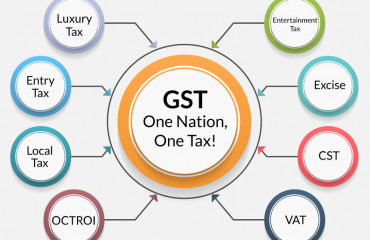
Franklin Templeton’s analysts are upbeat about India's growth prospects. They think investors should bet on India because of its remarkable growth, supported by government policies, in many sectors including aviation, IT, energy, etc.
Franklin Templeton's analysts are upbeat about India's growth prospects. They think investors should bet on India because of its remarkable growth, supported by government policies, in many sectors including aviation, IT, energy, etc.
Dina Ting, CFA, who heads global index portfolio management at Franklin Templeton ETFs, believes India's growing middle class and supportive government programs have accelerated growth in many sectors, including aviation, IT and energy, putting the country among the leading economies of the world.
"A growing middle class means more robust travel demand and the South Asian nation's booming airline business and aviation market is now one of the fastest growing in the world," Ting wrote in a note on July 20.
Ting underscored the rapid growth of the Indian aviation sector. "Analysts expect related government spending to reach nearly $12 billion by 2025 to boost regional connectivity, with plans to modernise existing facilities as well as build 80 new airports over the coming five years," Ting said.
Ting highlighted an important development in June this year when Tata-owned Air India, which is already the country's largest international carrier, confirmed a landmark commercial jet order of 470 Boeing and Airbus passenger aeroplanes which was Boeing's second-largest aircraft order ever.
India shining
Ting highlighted that last year, projections for India's rapid growth expectations set it apart as a frontrunner, due to its ability to diversify into more complex industries. As per India's Ministry of Science and Technology, the country is also said to have the third-largest tech start-up ecosystem globally with increased levels of financing and investment support.
Ting also pointed out that recently the US and India have begun partnering more closely on several fronts, including defence manufacturing and technology innovation which has boosted the prospects of the country.
"We believe this makes it an opportune time to pay closer attention to India and the exchange-traded funds that can offer investors a low-cost and tax-efficient vehicle for tactical country allocations," said Ting.
"For those seeking broad exposure to the Indian economy, note that its equity market, as measured by the FTSE India RIC Capped Index, returned more than 13 per cent over the second quarter of 2023 as investors shrugged off the market's weak start to the year."
The recent mega-merger between HDFC and HDFC Bank has created the world's fourth-largest bank. Ting sees it as a significant factor that helped the Indian market rally in the recent past.
Moreover, the formalisation of the Indian economy due to the introduction of goods and services tax (GST) and the growing digitisation of the economy is also a big positive.
"The rollout of the country's goods and services tax (GST) and the growing digitisation of the economy are said to be bringing more people into the formal economy," said Ting.
"India began setting a solid foundation for a more digital economy over a decade ago with the launch of its national identification program, Aadhaar, which uses biometric IDs to establish proof of residence. This has yielded many social benefits and been instrumental in advancing digital financial inclusion."
On the front of manufacturing, Ting believes if "India is able to expand its skilled labour workforce, it may lure more manufacturing away from elsewhere in Asia, including China, where minimum wages tend to be higher and workers now demand more."
Job creation remains a challenge but Ting pointed out that domestic demand has picked up.
"Indian consumers are also likely to have more disposable income, and as income distribution shifts, overall consumption can potentially see great increases. Goldman Sachs Research has projected India's GDP will overtake the euro area's in 2051 and America's by 2075," Ting said.
She underscored that apart from notable infrastructure buildout, financial sector growth and a vast and diverse population, India's remarkable progress toward transitioning to clean energy is another appealing consideration for investors.
She highlighted that the World Bank recently approved $1.5 billion in financing to accelerate the development of India's low-carbon energy sector. In addition, the International Energy Agency expects India to surpass Canada and China in the coming years to rank as the world's third-largest ethanol market after the United States and Brazil.
